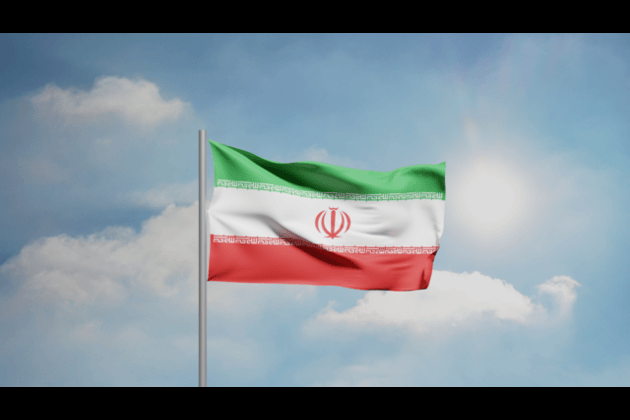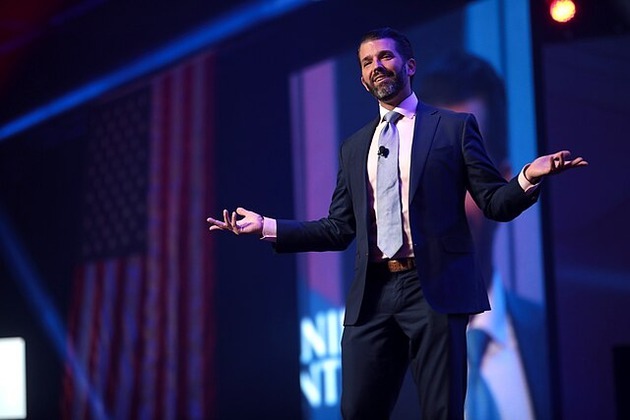Four Dogmas of Educational Perennialism: Classical Education Briefly Unraveled for the Families of Kansas City
Kansas City Post
04 Aug 2022, 05:30 GMT+10
Families in the Kansas City metropolitan area have numerous choices for private education. Among these alternatives are traditional Catholic schools, Evangelical day schools, Independent Schools, and home-education cooperatives. Classical schools are another educational option for families in the Kansas City metro.
I will advance the thesis that families should at least consider classical education in favor of STEM-specific education in several circumstances briefly discussed herein. I shall delineate four "dogmas" regarding classical education enshrined in the popular mind and seek ever so briefly and haltingly to refute them in the meager space I am allotted.
1. The first dogma. There is a notion that classical education is for "humanities" sorts and STEM education is for "science" sorts. According to this logic, if one embraces sciences more, they must consequently embrace classics less. This stance is deeply flawed. In the first instance, many classical schools have dual-enrollment agreements to provide advanced mathematics and science courses for high-school students. Additionally, these classes may be taught on-site on the school campus where enhanced access to faculty mentorship and tutoring exists. When laboratory facilities are lacking at a private school, universities are often of a mind to extend innovative laboratory space to the school, students, and staff. My own experience as a classical educator demonstrates this perspective. Additionally, disciplinary distinctions at the secondary level are far less important than critical thinking abilities gained inside and outside of the classroom. IB, A-Level, and European Matura curricula embody this truth. Specialization into "scientific" and "humanistic" thinking ought to occur later in a student's education. To leave secondary school knowing robotics but not how to present about robotics is a grave impediment to any student. Presentation is just as important as scientific content. Some of the finest scientists and mathematicians are also the finest lecturers precisely because they received classical tuition themselves. Einstein, Bohr, Heisenberg, Godel, Kripke, Oppenheimer, Feinmann, and other great scientific minds bear out this truth. While their secondary education was not classical in branding, the content is distinctly classical and includes a deep emphasis upon rational thought rather than specific content-knowledge.
2. The second dogma. There is a notion that classical education is "elitist" and only for the intellectually gifted. This is a distinctly American bias. German students pass Arbitur exams of a far higher standard than students in American suburban school districts. Every secondary student in Russia completes humanistic and mathematical study that is at least the equivalent of second-year university studies in the USA. Students in China pass extremely demanding mathematical and linguistic exams and are often given additional tuition in one or more foreign languages. South Korean students master multiple foreign languages as well as advanced mathematical and scientific studies in Calculus, Analysis, and Probability. Billions of students around the world complete deep scientific and humanistic study, achieve excellent educational outcomes as measured by PISA and similar benchmark results, and do not neglect the Liberal Arts in favor of science and mathematics. Such countries achieve these results despite often dramatically lower per-capita GDP and lower median incomes. It is more "elitist" to hold that US secondary students should be deprived of arts, languages, humanities, and STEM education despite our exceptionally high per-student education spending. To say that students should receive a quality education that they pay dearly for is not elitist at all. It is fair and just.
3. The third dogma. There is a prevalent and justifiable notion that classical education is Eurocentric and biased toward Western civilization. This is true, and classical educators should be careful to integrate perspectives from a broad range of thinkers to afford students optimal critical-thinking skills. In my career as a classical educator, I never neglected to include readings from Chinese, Indian, Japanese, African, South American, and Native American philosophies, cultures, and scientific traditions. In all fairness, however, I would doubt that most K-12 institutions include discussion of non-Western mathematics at all. By limiting mathematics and science to the domain of Western achievements and discussing the cultures and philosophical traditions of non-Western civilizations is itself Eurocentric and unjustifiable through any reasonable interpretations of multiculturalism, cosmopolitanism, relativism, or even most Christian theology via the doctrine of General Revelation. Moreover, a perceived deficiency in a class of Perennialist educational paradigms as broad as the classical educational tradition should not be taken as evidence for the null hypothesis that the status-quo is superior. The same deficiencies exist in most existing curricula in US schools of which I am familiar.
4. The fourth dogma. There is a prevalent supposition that religious conservatism and classical education are intertwined as a matter of logical necessity. Rather, they are richly intertwined as a matter of historical circumstances that require patience and intellectual honesty to appreciate. The notion that classical education is necessarily married to political and religious conservatism. The unique historical situation of the 1980s' in the American Intermountain West and Southeast occasioned the development of the modern classical education movement is an interesting phenomenon in the critical theory of religions. The rediscovery of Calvinist theology within mainstream Presbyterianism led to the development of Presbyterian Reformed Evangelicism and an increasing turn from Arminianism in previously Fundamental Baptist churches. The Religious Right never existed as a hegemonic entity in the 1980s', just as it does not exist as a hegemonic entity currently. Theonomy varies from Reformed Lutheranism. Conservative Episcopalian theology differs from the low liturgy of most Baptist churches. Conservative Catholicism differs from Preterism. Acceptance of the Nicene and Apostles' Creeds leaves quite a bit of room for dissent on other matters. The historical moment occasioned by the fall of the Soviet Union enshrined the notion among Left, Right, and Center that the Pax Americana would reign forever, and that the Neronian Reign of Communism and Totalitarianism in Europe had ended. The Soviets were crucified, and the reign of the market had begun. It was in this era of relative peace and prosperity that the Empire claimed the Church. Zion looked quite a bit like suburban Kansas City. Just as in Constantine's day, apathy was most obviously present when times were good. God's alleged favor produced too calm a sea to permit inebriation with vain ideologies. Favor was too cheap for even the most prudent of consumers. Like the Desert Fathers, many reckoned that the calm and pleasant weather of Middle Earth was a breeding-ground for apathy, vapidity, and listless pursuit of pleasures. If a City on a Hill did not exist, it would have to be invented. To properly decry the descent of the American mind into inanity was to renounce a false Eden in favor of a marketplace of ideas that was daily becoming more fractured and difficult to navigate. Battle lines had to be drawn, and Iscariot had to be cast out, even if it cost the sweet peace of vapidity. Milton's Man was fashioned for war and not for peace. To be properly human, he had to form his own ramparts and forge his battlements from the wilderness. Hobbes was right in this sense: To be human, for the Christian and for all people everywhere, is to be at perpetual war with something. As Neocalvinism reminded us, this war could be fought with the pen, and the enemies were both the flesh and the mind. To be liberated was to place the mind under the dominion of the ancient arts that had nurtured Augustine, Athanasius, and the Christians of Hellenic antiquity who labored under this perpetual condition of war.
5. Conclusion. To be educated in the classical tradition is not to be conservative, liberal, religious, or without religion. It is merely to be acquainted with the commanding heights of civilization as well as the nuances of the Quantum world. To be educated classically is to approach evidence with fairness of mind and to renounce the idols of the tribe that grip unreasoned and unreflective life. We should not say that the unexamined life is not worth living when the market does not bear it. Rather, we should examine our lives and universe critically and without reserve no matter the costs. Let us be inebriated with wonder for arts, sciences, mathematics, history, and philosophy and not drunk on the communion grapes of the Empire and its prophets.
Dr. Jonathan Kenigson, FRSA Share
Share
 Tweet
Tweet
 Share
Share
 Flip
Flip
 Email
Email
Watch latest videos
Subscribe and Follow
Get a daily dose of Kansas City Post news through our daily email, its complimentary and keeps you fully up to date with world and business news as well.
News RELEASES
Publish news of your business, community or sports group, personnel appointments, major event and more by submitting a news release to Kansas City Post.
More InformationInternational
SectionTrump gives himself a fortnight to decide on joining Netanyahu's war
WASHINGTON, DC - In a bid to defuse speculation, U.S. President Donald Trump says he will make his decision on whether to have the...
U.S. abandons inter-agency effort to pressure Moscow on Ukraine
WASHINGTON, D.C.: A quiet shift inside the Trump administration has stalled a key diplomatic initiative aimed at pushing Russia toward...
Investigators examining Black Boxes recovered from Air India Boeing
NEW DELHI, India: Indian investigators are examining the black boxes from a Boeing 787 Dreamliner to determine the cause of a catastrophic...
New banquet rules in China after deaths, part of Xi’s crackdown
BEIJING, China: Chinese civil servants are now facing stricter rules on dining together, with some local authorities limiting group...
Tehran seeks ceasefire via Gulf allies, offers nuclear flexibility
DUBAI, U.A.E.: As violence escalates between Iran and Israel, Tehran is turning to its Gulf neighbors to help broker a ceasefire —...
Blaise Metreweli becomes first woman to head MI6
LONDON, U.K.: On June 15, Britain named Blaise Metreweli as the first woman to lead the Secret Intelligence Service, commonly known...
Business
SectionU.S. on edge as Israel-Iran conflict escalates
NEW YORK, New York - U.S. stocks made only minor moves in both directions,Thursday, as investors fretted about the Israel-Iran conflict...
Luxury giant Kering bets on outsider de Meo to lead turnaround
PARIS, France: Luxury group Kering's decision to tap Luca de Meo as its next chief is being seen as a daring but necessary attempt...
Trump family enters telecom with branded phone, mobile service
NEW YORK CITY, New York: The Trump family has unveiled a new venture in the telecom sector — and it's drawing as much scrutiny as it...
Starmer: US-UK trade deal to be finalized 'very soon.'
KANANASKIS, Alberta: With key tariff deadlines approaching, British Prime Minister Keir Starmer said this week that finalizing the...
Aircraft orders expected as Paris airshow opens, despite recent crises
PARIS, France: The Paris Airshow kicked off on June 16, attracting attention with expected aircraft orders, but overshadowed by the...
U.S. stock markets divided as Fed leaves interest rates unchanged
NEW YORK, New York - U.S. stocks were largely range-bound Wednesday after the Federal Reserve decided to maintain the target range...













